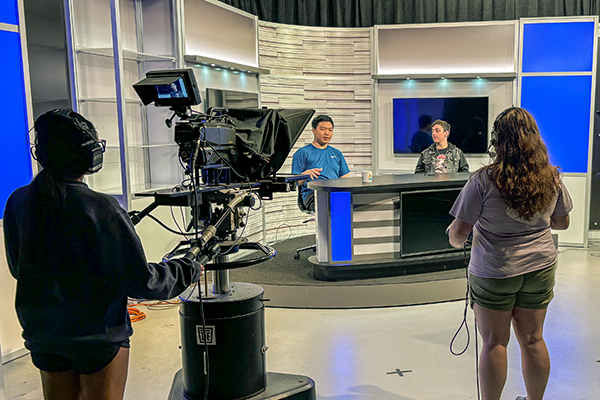
Presented by the School of Communication, “Be the Change” focused on the basics of video production in UHart’s TV studio and on location, TV and video news, media literacy and activism, public service announcements, and the role of media in a democracy.
The students produced their own TV show as well as short videos about issues that are important to them. “The video that the students created showcases the diversity of the students, their life experiences, what they learned in the program and their ideas about how they can use their voice in media for social change,” says School of Communication director and associate professor Jack Banks.
Banks says that in a post-program survey, a majority of the students indicated they can more effectively use their voice in media to address issues that are important to them. In addition, after participating in the program, many of the students said they are more interested in the University of Hartford as a possible destination for college.
Jack Banks, Director of the School of Communication"We helped empower the diverse students in the program to imagine a future where they can make use of media for social change. A majority of students said that they can more effectively use their voice in media to address issues that are important to them."
The students were chosen in a competitive selection process based on academic achievement, extracurricular activities, and an essay. While attendance was valued at $2,000 per student, the program was free of charge for participants, thanks to a generous donation from Impact Teen Drivers and the continued support of NJM Insurance Group.
“Be the Change” builds on the success of longstanding partnerships between the School of Communication, FOX61, and Impact Teen Drivers. The school has hosted the FOX61 Student News Awards since 2018, and has invited high school classes in journalism and media production to Media Days since 2022.
As for “Be the Change,” Banks says Impact Teen Drivers has expressed a desire to fund the program on an annual basis. “We helped empower the diverse students in the program to imagine a future where they can make use of media for social change,” he says.